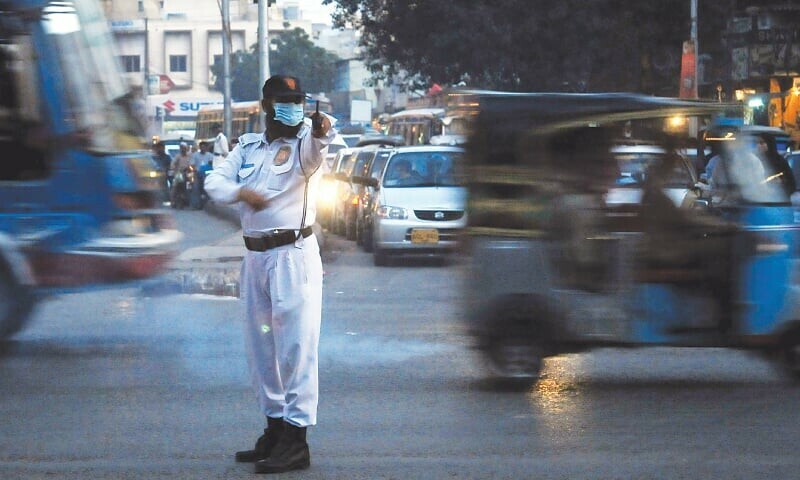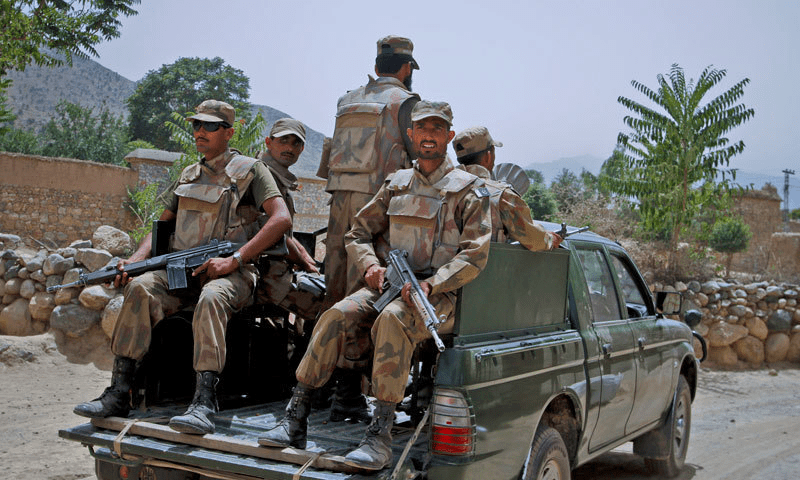The Sindh government replaced the chief of the Karachi Traffic Police (KTP) on Thursday.
A notification by the Sindh chief secretary issued today said KTP Deputy Inspector General (DIG) Ahmed Nawaz Cheema was transferred and directed to report to Services, General Administration Department (S&GAD).
It added that grade 20 police officer Syed Pir Muhammad Shah was appointed as the traffic police chief with immediate effect.
The development comes following growing incidence of traffic accidents, mostly involving dumpers and other heavy vehicles.
An alarming increase was registered in the road traffic accidents in the metropolis last year as nearly 500 people were killed while 4,879 were injured due to reasons ranging from reckless driving to construction activities, etc.
Police surgeon Dr Summaiya Syed told Dawn.com that a total of 497 people — out of which 67 were females — were referred to the Jinnah Postgraduate Medical Centre (JPMC), Shaheed Mohtarma Benazir Bhutto Trauma Centre at Civil Hospital Karachi (CHK) and Abbasi Shaheed Hospital (ASH) for post-mortem examinations in the year 2024.
According to the data provided by the police surgeon, a total of 153 males and 21 females were brought dead to the JPMC, 96 males and 10 females to the CHK and 181 males and 36 females were brought to the ASH for their autopsy.
“A total of 4,879 persons injured in road traffic accidents were also reported at three major government hospitals in the metropolis last year,” she said, adding that 1,035 of them were females.
Dr Syed said that some of them might have died during treatment as the families did not want post-mortem examinations.
The police surgeon said that 2,063 males and 893 females injured in accidents were brought to JPMC, 617 males and 44 females to CHK and 1,164 males and 98 females to ASH for treatment.
She said that the number of people killed in accidents might be higher as all deaths were not reported to the medico-legal sections of the hospitals for post-mortem examinations.
On the other hand, certain injured people who died during treatment were also not reported to the medico-legal sections for autopsy, partly because families appeared reluctant to do so.




Leave a Reply